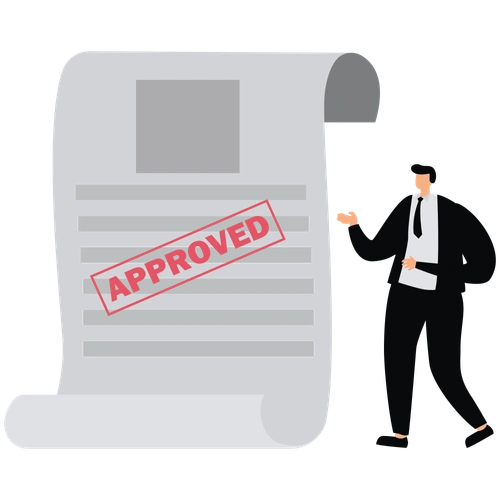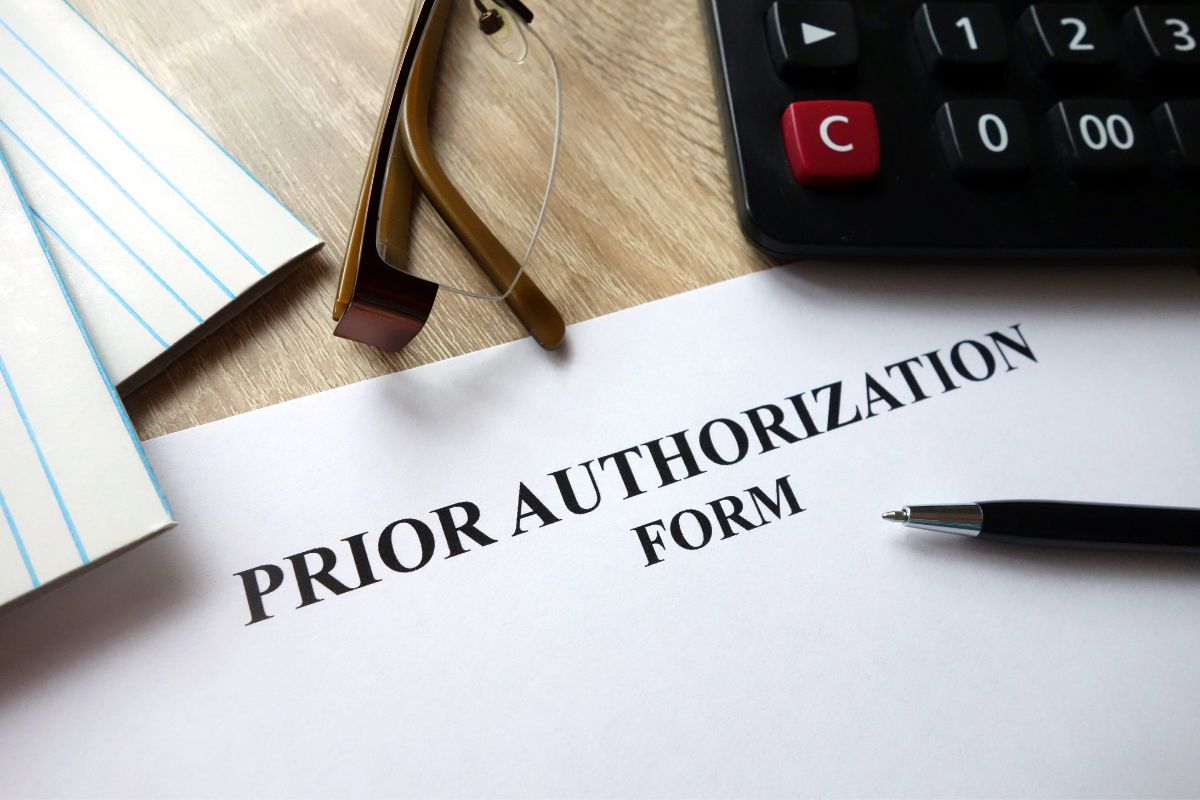
Medicare and Prior Authorization
Have you ever been told you need prior approval from your insurer before undergoing a medical procedure? Prior authorization, or pre-approval, is when Medicare or your Medicare Advantage plan needs to give a nod before a service is rendered. Remember, Medicare only foots the bill for “medically necessary” services. Consequently, your doctor tries to make sure they're reimbursed before proceeding. Wondering how this impacts you? Let’s dive into the details of prior authorizations.
When Does Medicare Use Prior Authorizations?
Whether you're under Original Medicare with a Medigap plan or are enrolled in a Medicare Advantage policy, your physician might seek pre-approval before executing a service or prescribing specific treatments. This could relate to acquiring durable medical equipment (DME) or scheduling advanced diagnostics like a PET scan.
It's the healthcare provider's responsibility to submit the pre-approval documents, engaging directly with the insurance provider—leaving you generally uninvolved in the paperwork.
For urgent treatments, you may want to communicate with your doctor to make sure they send the necessary forms quickly, as Medicare won't foot the bill without their endorsement. Typically, responses from insurance entities, be it approval or denial, come in within five to ten business days.
Once approved, you're all set to proceed with the designated treatment or medication.
However, if Medicare denies your request, you may need to work with your provider to submit more paperwork. You can also reach out to the team at Local Medicare Specialists to find out more about why the prior authorization might have been denied.
Do I Need Prior Authorization from Medicare?
You may wonder, "What's the implication of prior authorization for me? Does it mean I'm at risk of not having my surgery covered if deemed unnecessary by my plan?"
If your healthcare provider makes a mistake in the billing codes or neglects to file for pre-approval delineating the medical necessity of a procedure, there's a high chance your plan won't cover the costs. Several doctors have taken note of this predicament.
A study by Becker’s Hospital CFO involving 1,000 practicing physicians revealed:
-
94% believe the pre-approval process hinders timely access to vital care
-
39% say it often causes delays, while 15% claim it always does
-
90% feel that pre-approvals negatively influence patient outcomes
Fortunately, during emergencies, the pre-approval protocol isn't mandatory. In emergent situations, treatments are generally deemed essential, negating the need for pre-approval.
Ultimately, with Medicare, the crux lies in the medical necessity. If your treatment unambiguously aligns with Medicare's criteria, you might bypass the pre-approval process. But, if there's ambiguity regarding its necessity, it's safer to assume you'll need that pre-approval.
Original Medicare, Medigap, and Prior Authorization
Historically, the Social Security Act exempted Medicare services from pre-authorization requirements. However, amendments to the act introduced provisions for pre-authorizations for certain services and items, notably including durable medical equipment.
Still, in practice, encountering pre-authorization demands with Original Medicare is uncommon. Under Medicare Part A, pre-authorizations for inpatient care are infrequent. If it's essential, you'd be responsible for obtaining and submitting the requisite forms to Medicare.
With Medicare Part B, pre-authorization might come into play when specific outpatient drugs are prescribed. In such cases, your doctor would need to complete a drug pre-authorization form. Once approved, Medicare would then pay its designated coverage portion.
Beneficiaries who have only Medicare Part A and Part B don’t have to worry about provider networks. You have the flexibility to see any Medicare-accepting hospital nationwide, and you don't need a referral to consult a specialist.
Medicare Advantage and Prior Authorization
Medicare Advantage plans frequently demand prior authorizations for their services. The Kaiser Family Foundation points out that a significant 70% of Medicare Advantage enrollees must obtain prior authorizations for items like durable medical equipment, inpatient hospital visits, Part B drugs, and skilled nursing facilities. As a rule of thumb, services with higher associated costs are more likely to require this pre-approval.
While enrollees can challenge the plan's decision, many forgo this option, resulting in them paying the entire expense. The earlier survey by Becker’s Hospital CFO revealed that about 79% of interviewed physicians noted that the pre-authorization procedure occasionally results in patients discontinuing treatment.
Given that each Medicare Advantage plan operates with its own provider network, enrollees often find themselves needing prior authorizations for various scenarios. This can range from seeking care from a specialist outside the network to securing non-emergency hospital services. As requirements can vary widely between plans, it's imperative for those on a Medicare Advantage plan to directly consult their policy to ascertain when and where prior authorizations are obligatory.
Medicare Part D and Prior Authorization
Medicare Part D plans, focusing on prescription drug coverage, rely on a formulary – a list specifying the drugs they cover. However, some medications under these plans have restrictions, with prior authorization being a predominant one. When such restrictions apply, the physician must liaise with the plan to secure approval for the prescription. The plan, in turn, informs the enrollee about the request's status – be it approved, denied, or necessitating additional information. A denial means the plan won't cover the cost of the drug.
This prior authorization procedure serves multiple purposes: it assesses potential drug interactions that might have been overlooked by your doctor, and it acts as a safeguard against the prescription of superfluous, potentially addictive, or conflicting medications.
When evaluating a prior authorization request, plans might suggest a more cost-effective generic or alternative drug with equivalent efficacy. It's essential to be proactive: familiarize yourself with your plan's documentation to identify which drugs require prior authorization, ensuring that your physician initiates the process swiftly. Many plans provide online forms for easy print-out and completion at the doctor's office.
Certain categories of medications often face non-approval:
-
Those presenting risks when mixed with other drugs
-
Medications with available, cost-effective, and equally efficacious alternatives
-
Drugs prone to misuse or abuse
-
Medications intended for cosmetic applications
-
Drugs designed explicitly for specific health conditions
Why Does Medicare Use Prior Authorizations?
The concept of prior authorization within insurance plans, especially within Medicare, can initially seem cumbersome. But there are good reasons they exist.
Cost Management: One of the primary reasons for prior authorization is to manage and reduce costs. By ensuring that certain procedures, treatments, or medications are genuinely necessary before they are approved, insurance companies can prevent unnecessary spending. This benefits both the insurer and the enrollee by potentially lowering premiums and out-of-pocket costs.
Combatting Fraud: The healthcare industry, unfortunately, isn't immune to fraudulent activities. Some services, like durable medical equipment and home health care, have historically been hotspots for fraudulent claims. Prior authorization acts as a safeguard, ensuring that services or items being claimed are medically necessary and legitimate.
Ensuring Appropriate Care: While managing costs is a driving factor, the goal of prior authorization isn't just to save money. It's also there to ensure that patients are receiving appropriate care. By reviewing and authorizing specific treatments or medications, insurance companies can ensure that patients are not receiving redundant, potentially harmful, or unnecessary treatments.
Limiting Overutilization: Without checks and balances like prior authorization, there's potential for overutilization of medical services, which can strain the system and lead to wasted resources.
On the flip side, the process can sometimes act as a double-edged sword. The added layer of bureaucracy can cause delays, leading to frustration for both the patient and healthcare providers. In some cases, these delays can result in postponed treatments or patients might abandon the recommended treatment due to the lengthy approval process.
While prior authorization serves essential cost-saving and fraud-preventing purposes, it's crucial for insurers and regulatory bodies to continually refine the process, ensuring patient care remains at the forefront.
Still Have Medicare Questions?
Schedule a FREE Medicare plan consultation with an agent in your neighborhood.
Privacy and Security: Your privacy and security are extremely important to us. Your personal information is protected by our Privacy Policy
LocalMedicareSpecialists.com is privately owned and operated by LMS Insurance LLC. LocalMedicareSpecialists.com is a non-government resource for those who depend on Medicare, providing Medicare information in a simple and straightforward way.
We do not offer every plan available in your area. Currently we represent 11 organizations which offer 173 products in your area. Please contact Medicare.gov, 1-800-MEDICARE, or your local State Health Insurance Program (SHIP) to get information on all of your options.
